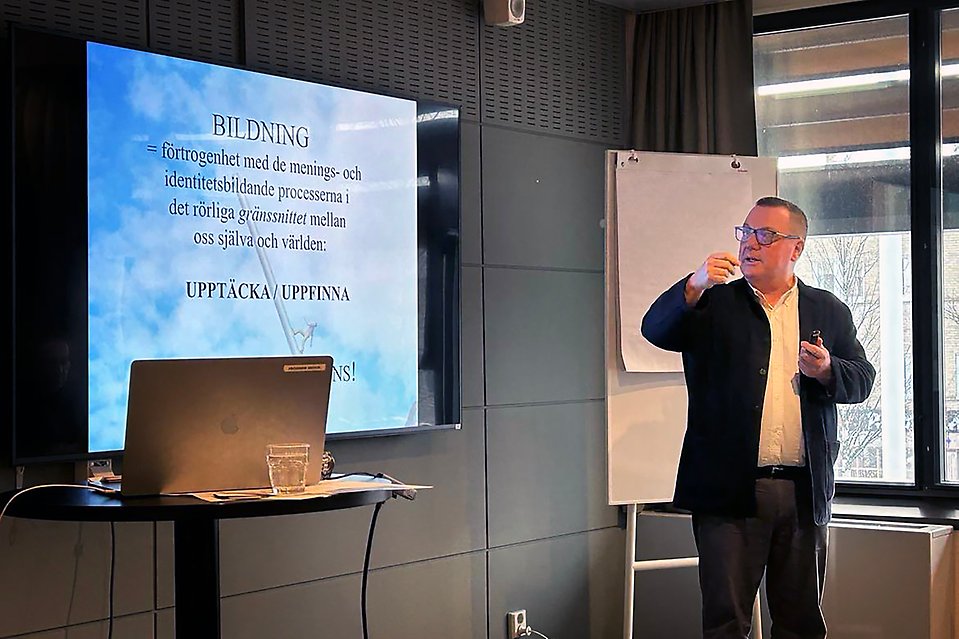Social sustainability
Education takes center stage as three Nordic countries meet at symposium
Promoting education is essential for building a socially sustainable, inclusive society. With today's rapid development, education is more important than ever. But the question is how to do it? In November, representatives from three Nordic countries - Sweden, Finland and Norway - met in Skellefteå to discuss the topic.
Education is not just about formal training, but about a broader understanding and knowledge of society, culture and the world we live in. A process that, through working life, community involvement, cultural activities, dialog and personal reflection, continues throughout life.
At Scandic Skellefteå, a symposium was held within the framework of the strategic partnership between Umeå University and Skellefteå Municipality, as well as the Finnish-Swedish project HanaAcademy at Hanaholmen - cultural center for Sweden and Finland and with support from the Cultural Fund for Sweden and Finland.
Among other things, the participants received an inspiring lecture by Bengt Kristensson Uggla, professor at Åbo Akademi University, who highlighted the important cooperation between the three Nordic countries.

Bengt Kristensson Uggla, professor vid Åbo Akademi.
Heidi Hansson, Professor at Umeå University and Chair of HanaAcademy, agrees that the cooperation is important.
- 'I think it is extremely important that all three countries are involved. Not least so that we can learn from each other's different approaches to the problem. We have perspectives that we need to share with each other. Then we look at education in slightly different ways in the different countries and we can also learn from that,' she says.
The symposium was attended by representatives from different parts of society. And Heidi Hansson believes that meeting places like this will be able to contribute many insights.
- 'It is important to see the different perspectives. Those who participated are in the midst of social transformation in industry and development companies, but there are also participants in public education, universities, municipalities, in other words all parts.
She believes that it is very important to create an understanding of others' perspectives.
- "One thing that is very often missed is that we do not understand the technology, science or economy behind, for example, an industrial building like Northvolt in Skellefteå. And when we don't understand that, it's very easy to form a lot of preconceived notions about what's really going on. What opportunities do we have to know and understand that? It is important to get that knowledge. And I think we need to create meeting places for that.
During the day, panel discussions were held on the value of education on various topics such as science, social transformation, culture and popular education.
The following day, a smaller group gathered to map out the future. Among other things, a research project is planned.
- "But we also envisage a development project, given the situation we find ourselves in this development corridor between Mo i Rana and Vaasa, where we are actually facing the same problems. We risk ending up in competence cannibalism if we do not take advantage of these opportunities to do things together," says Heidi Hansson.
Participating in the symposium were representatives from Umeå University, Skellefteå Municipality, Vasaregionens utveckling AB, Folkuniversitetet, Föreningen Norden, Hanaholmen, Hanken, the Kvarken area, Västerbotten County Administrative Board, Mid Sweden University, MidtSkandia, Nord University, Studiefrämjandet, Åbo Akademi and representatives from the northern region's business community.
Sidinformation
- Senast uppdaterad:
- 11 March 2024

